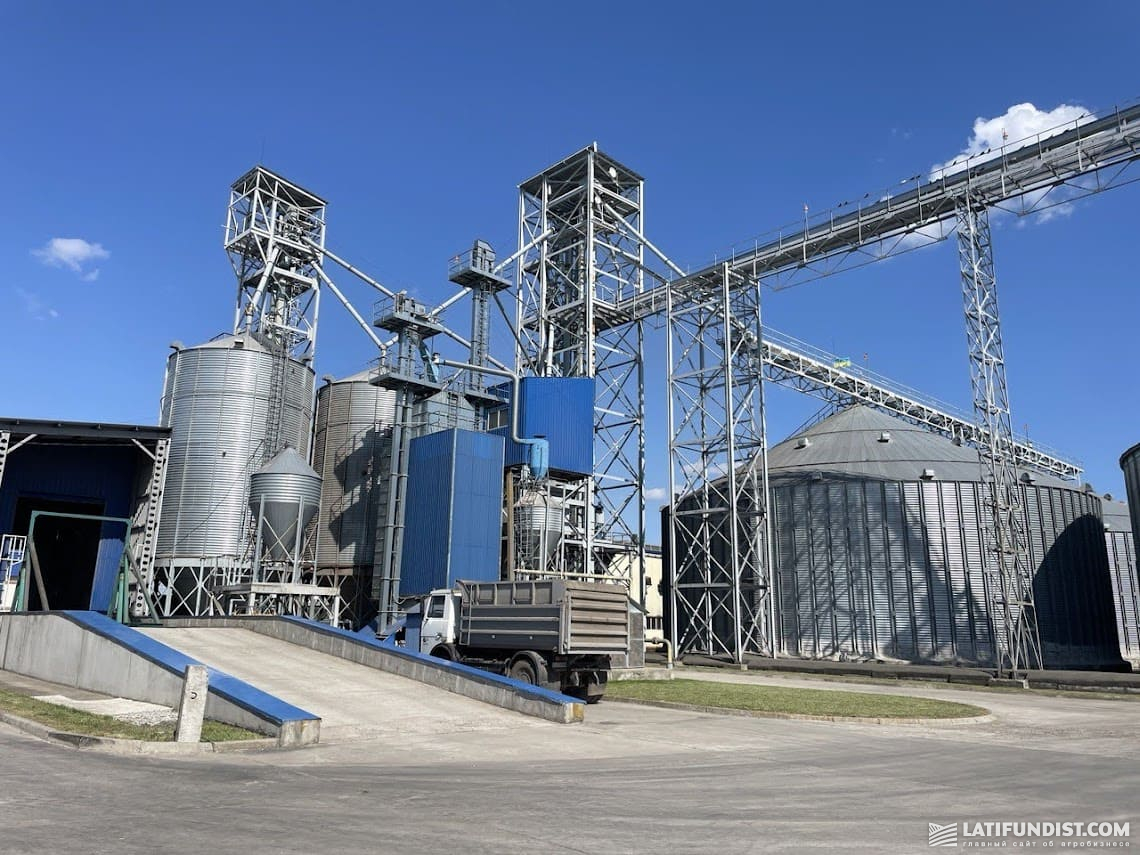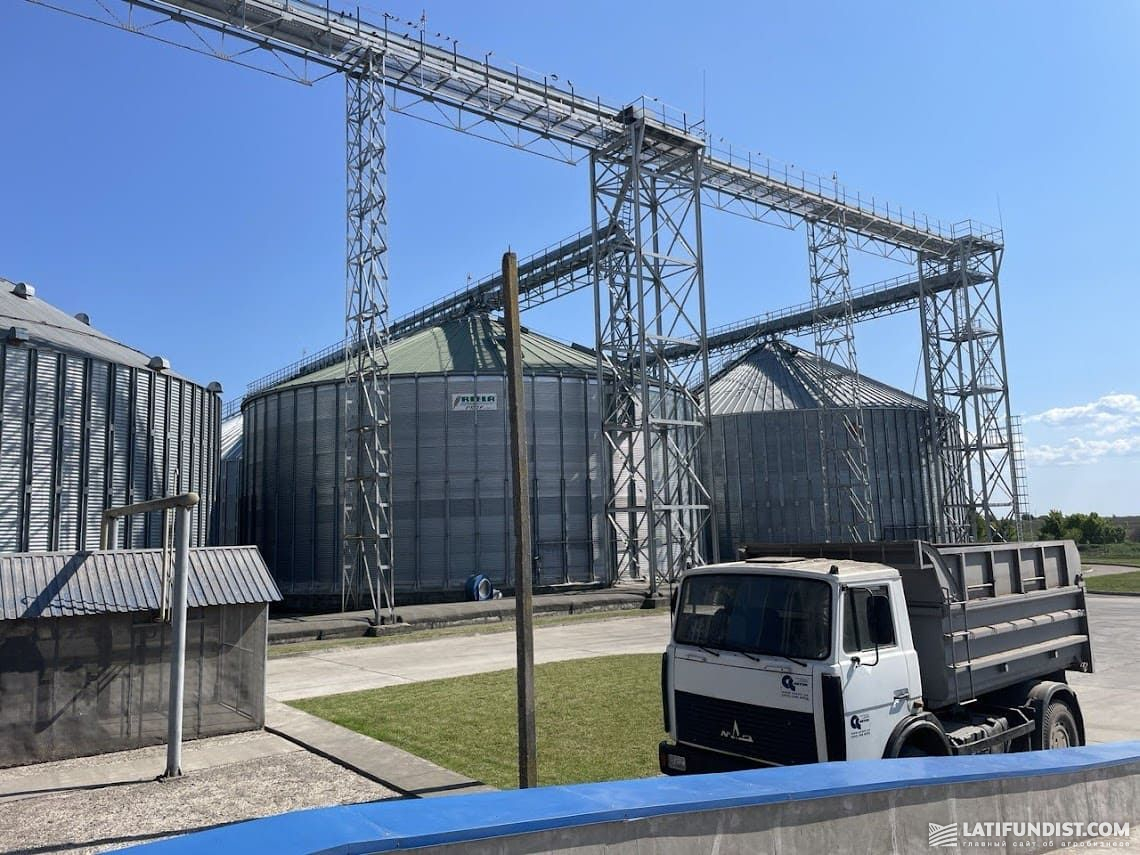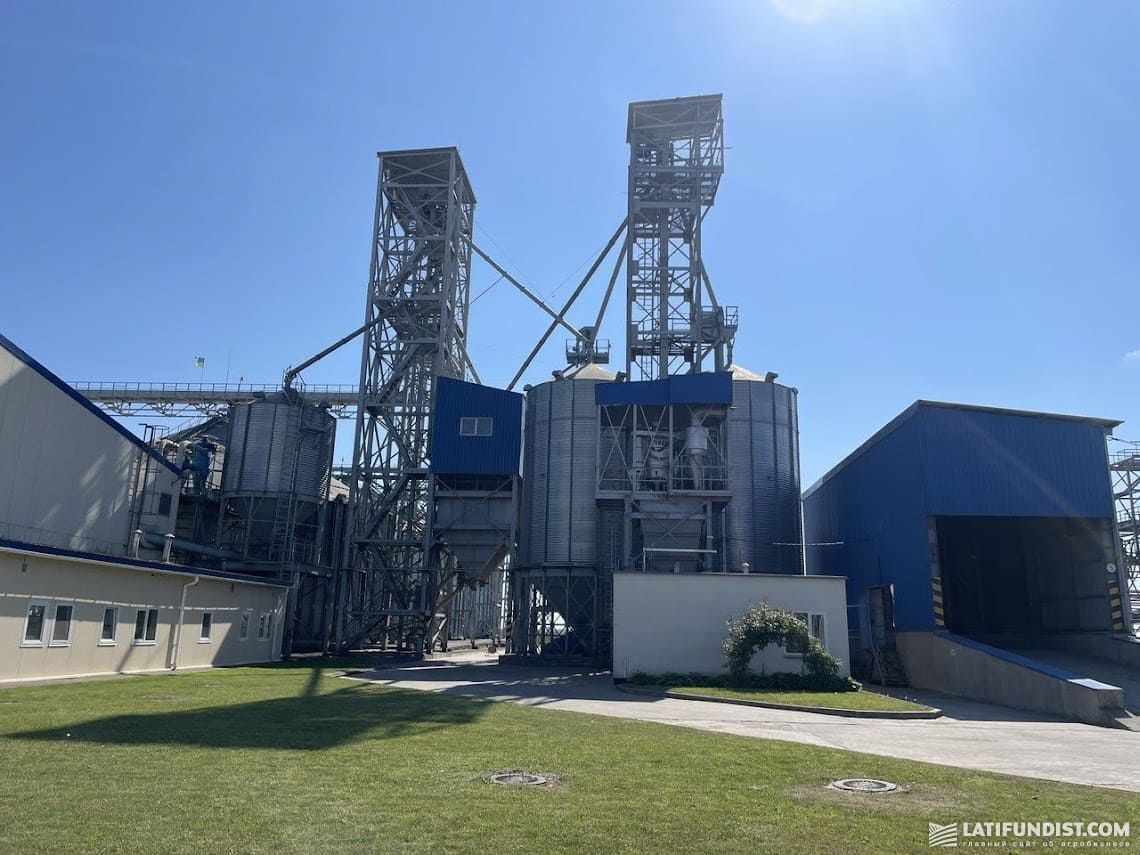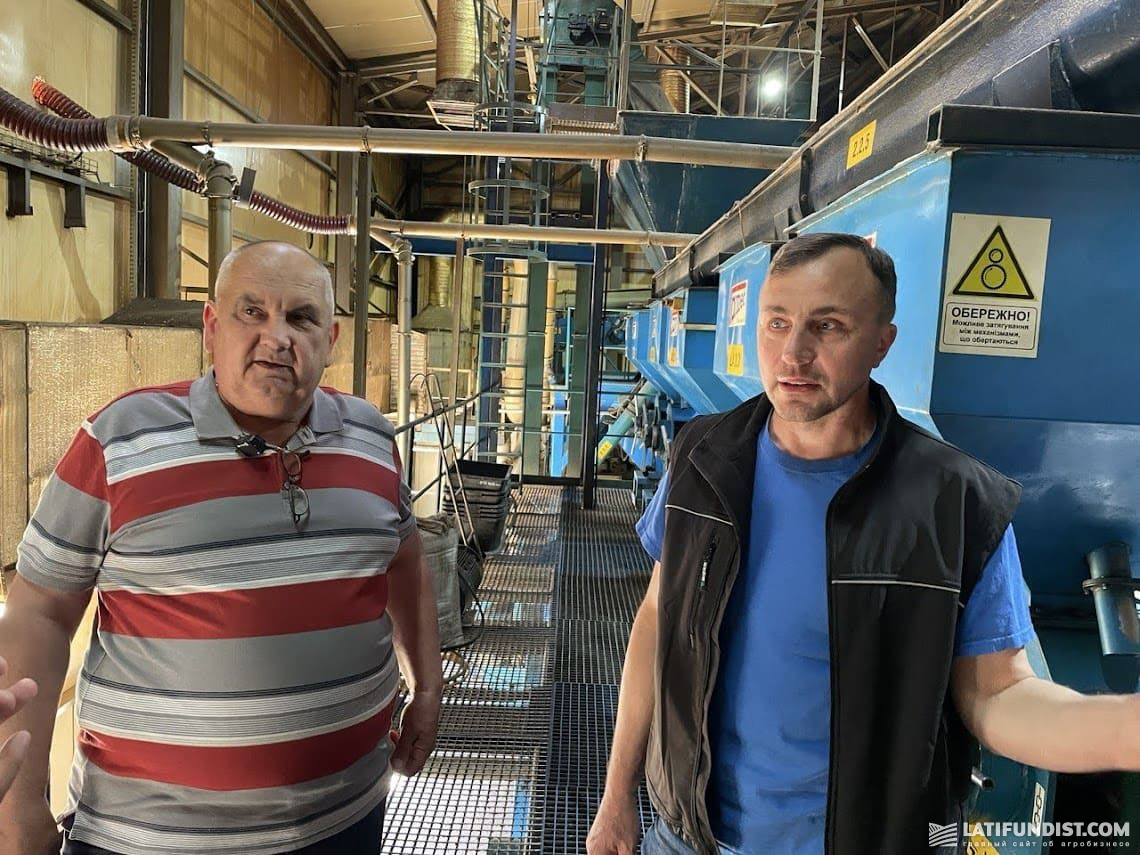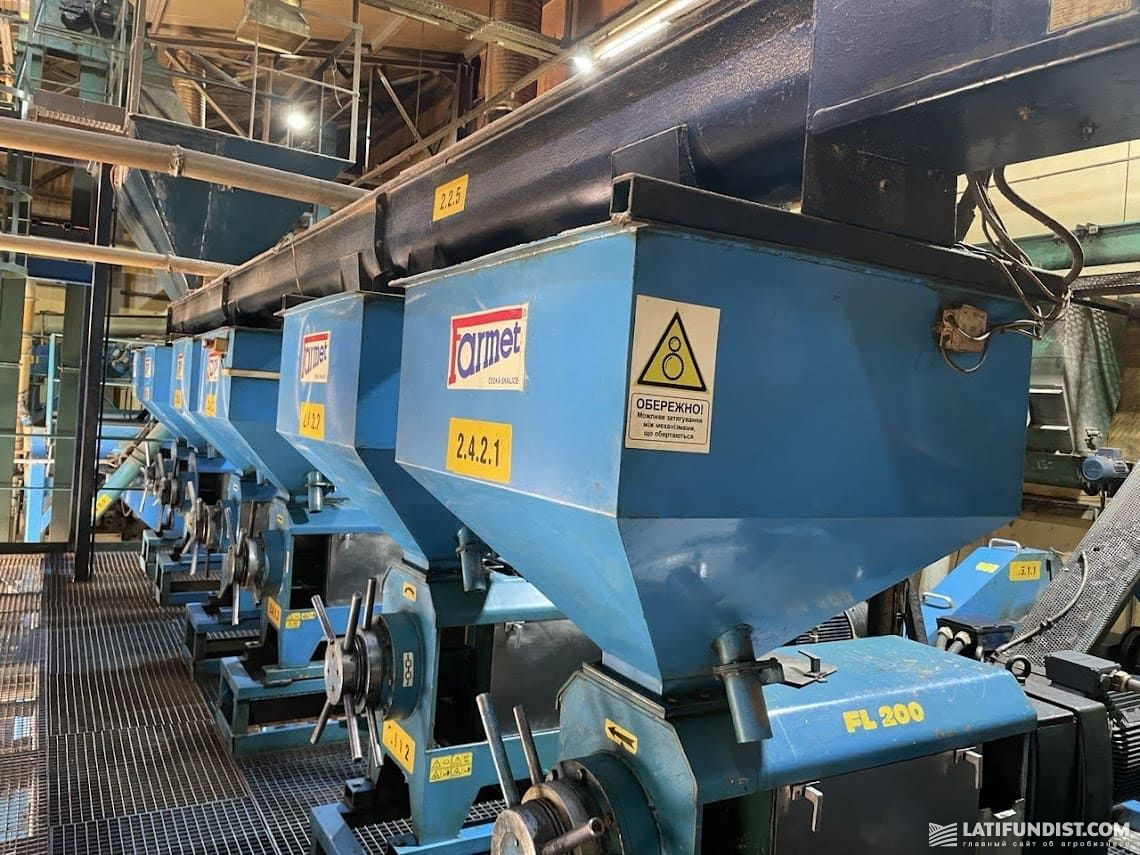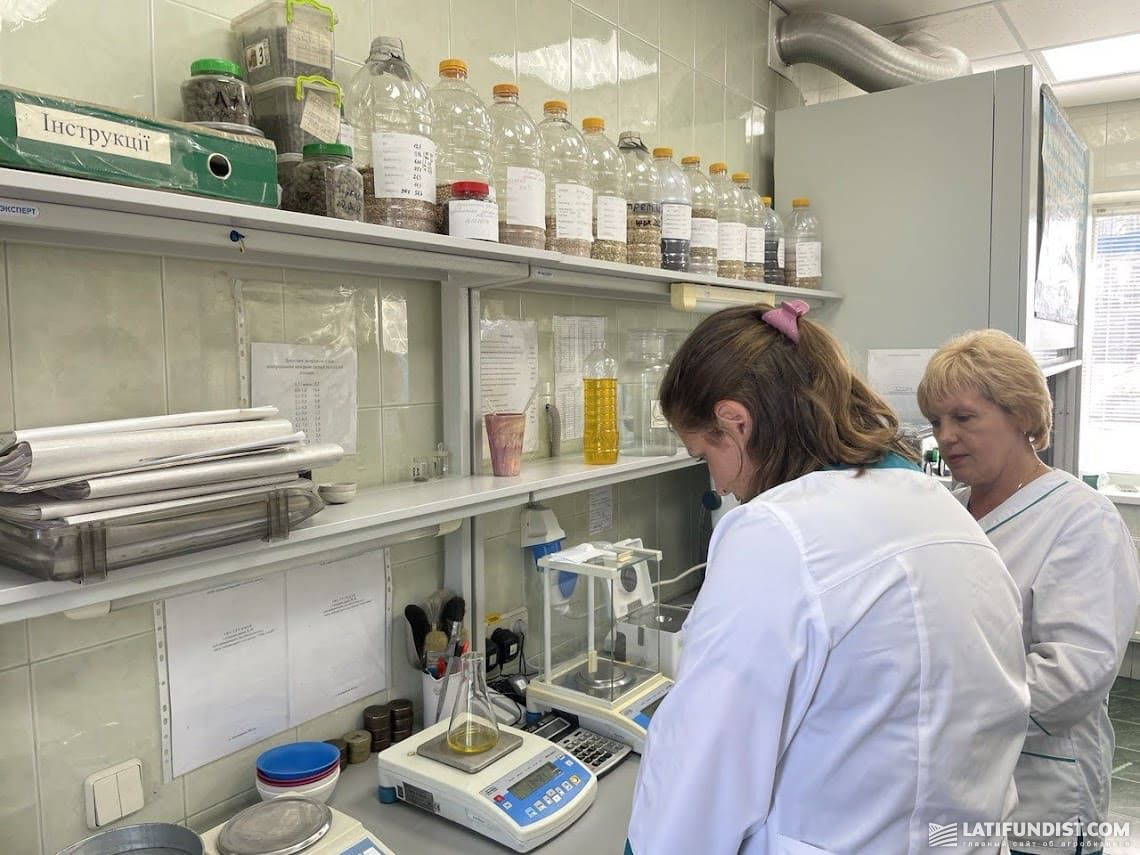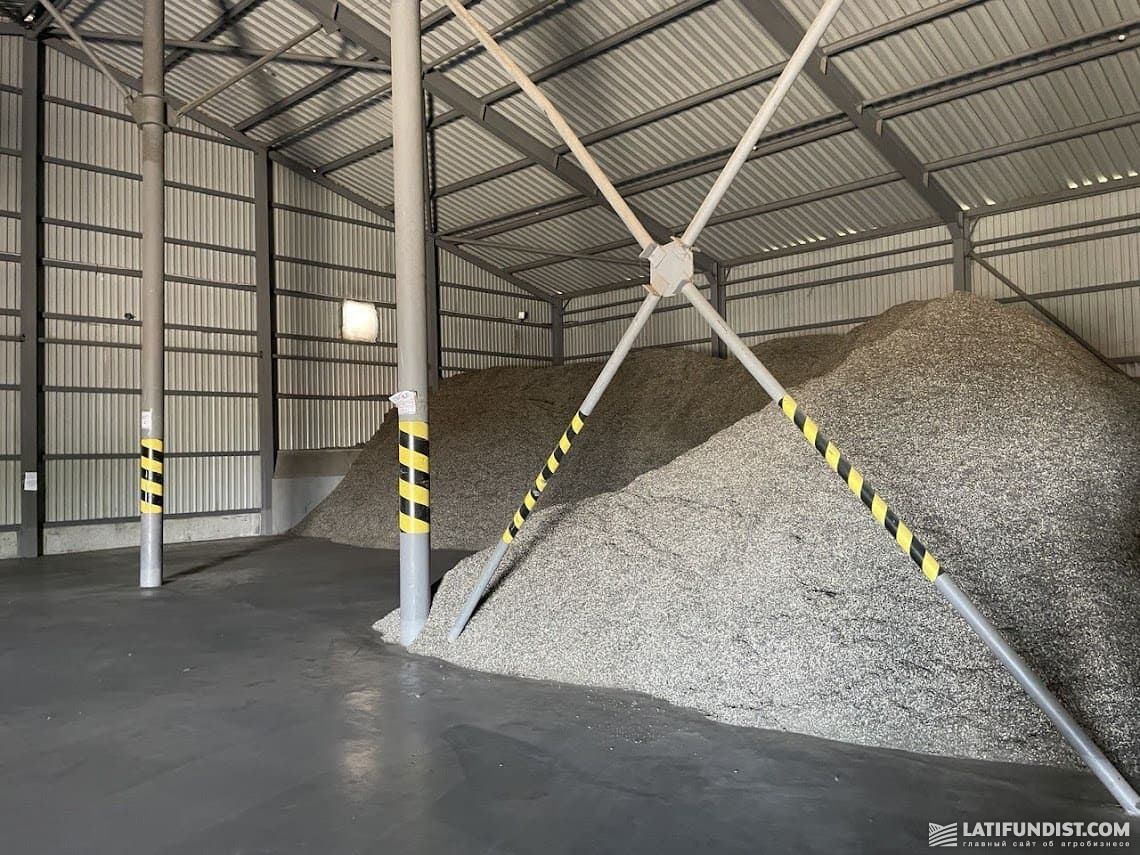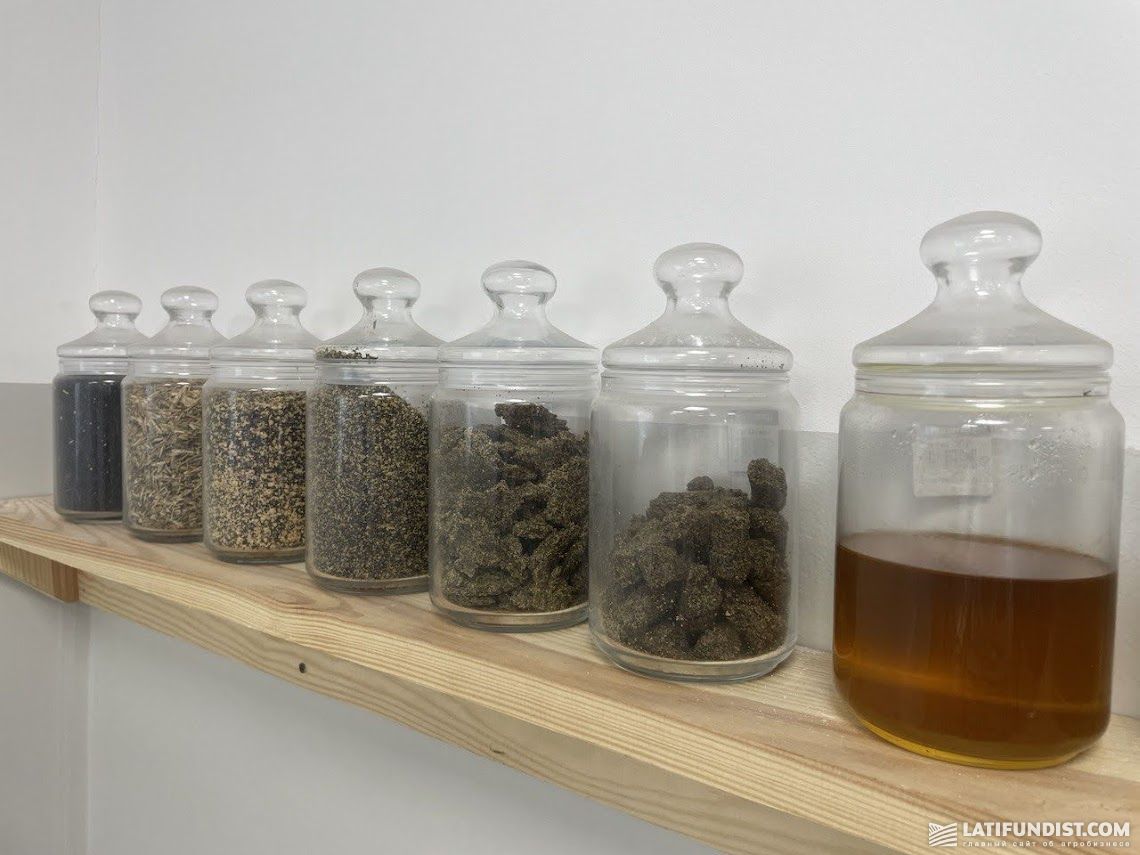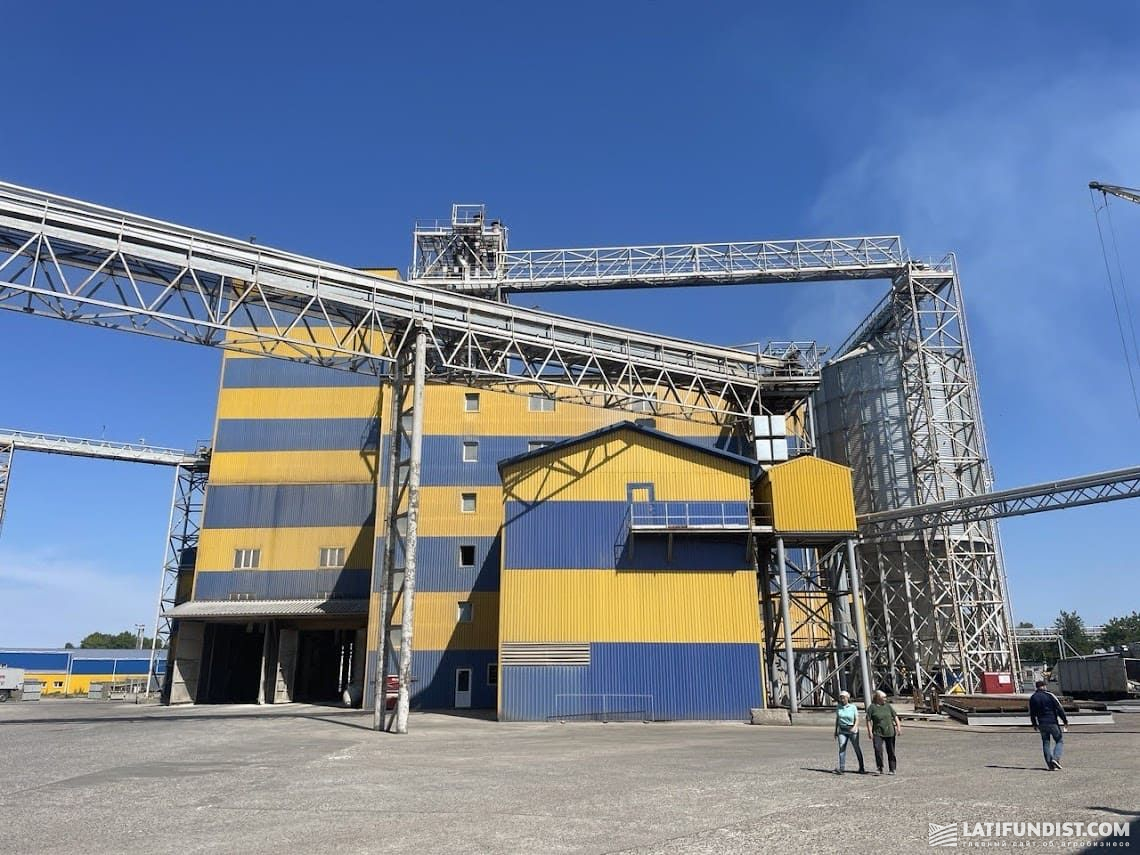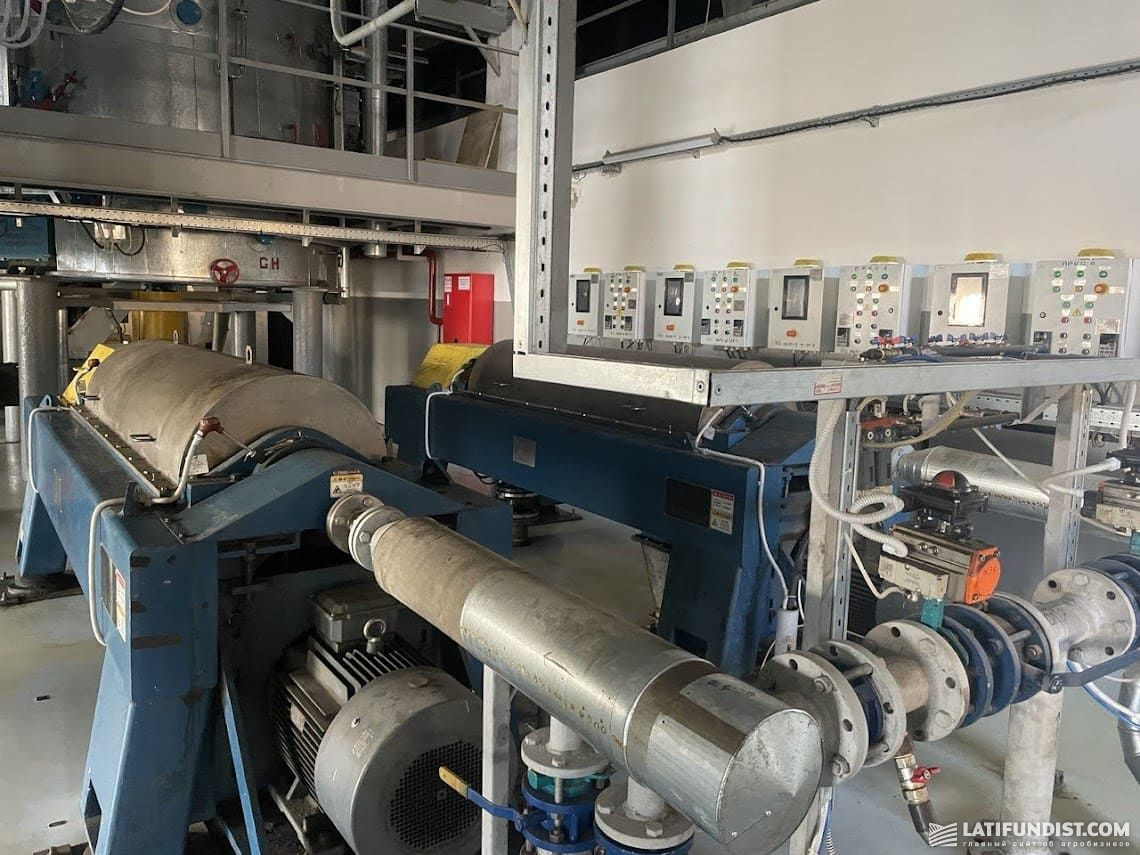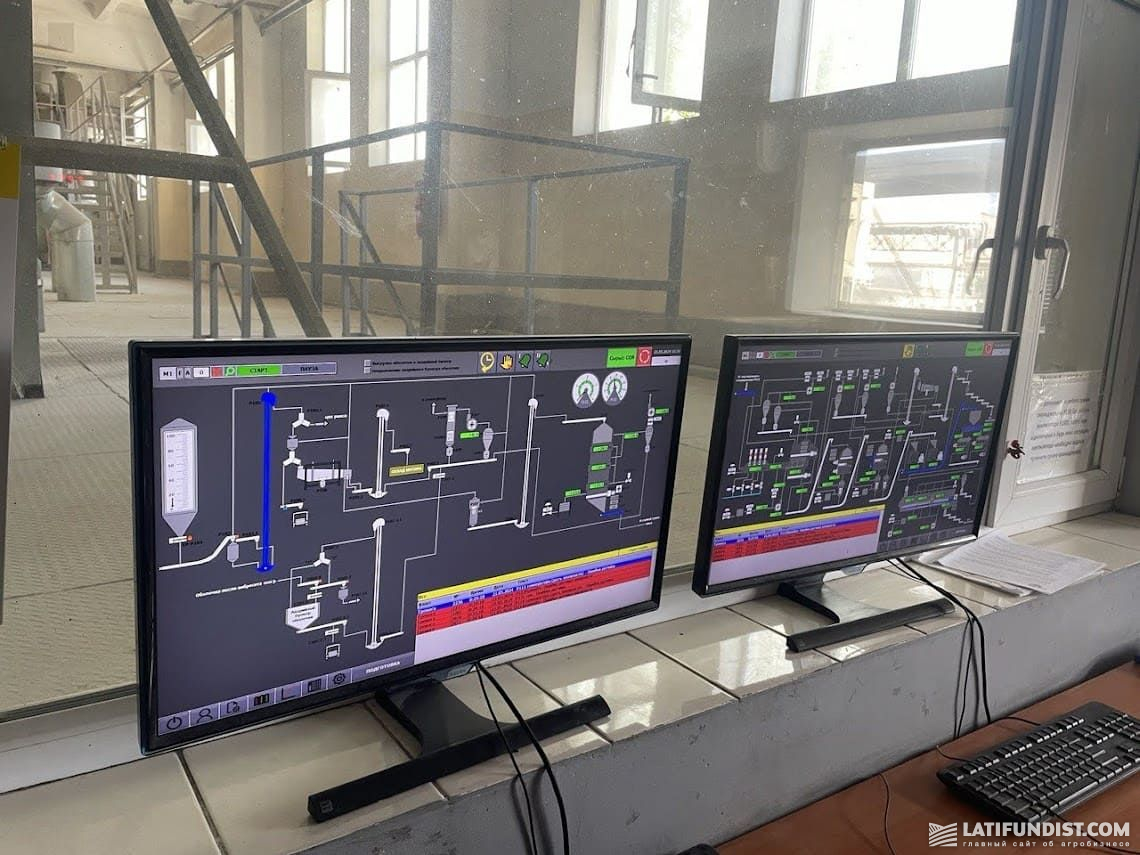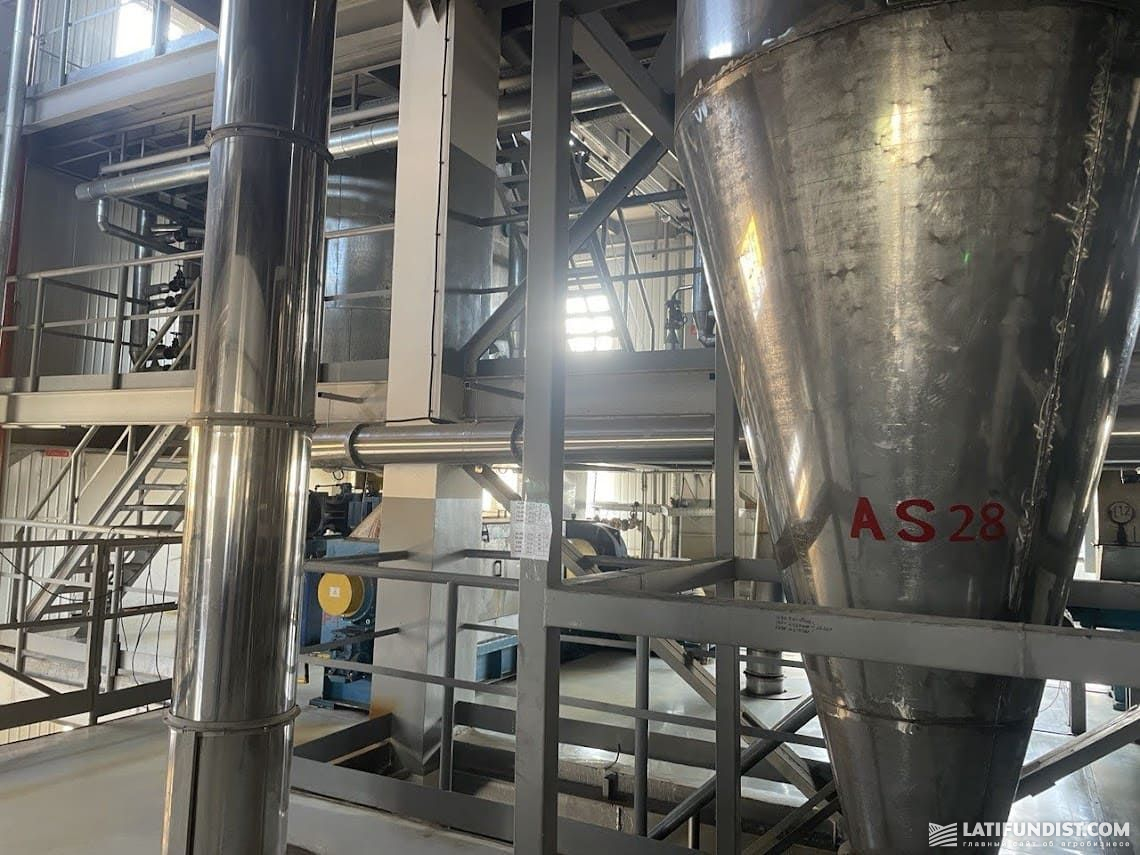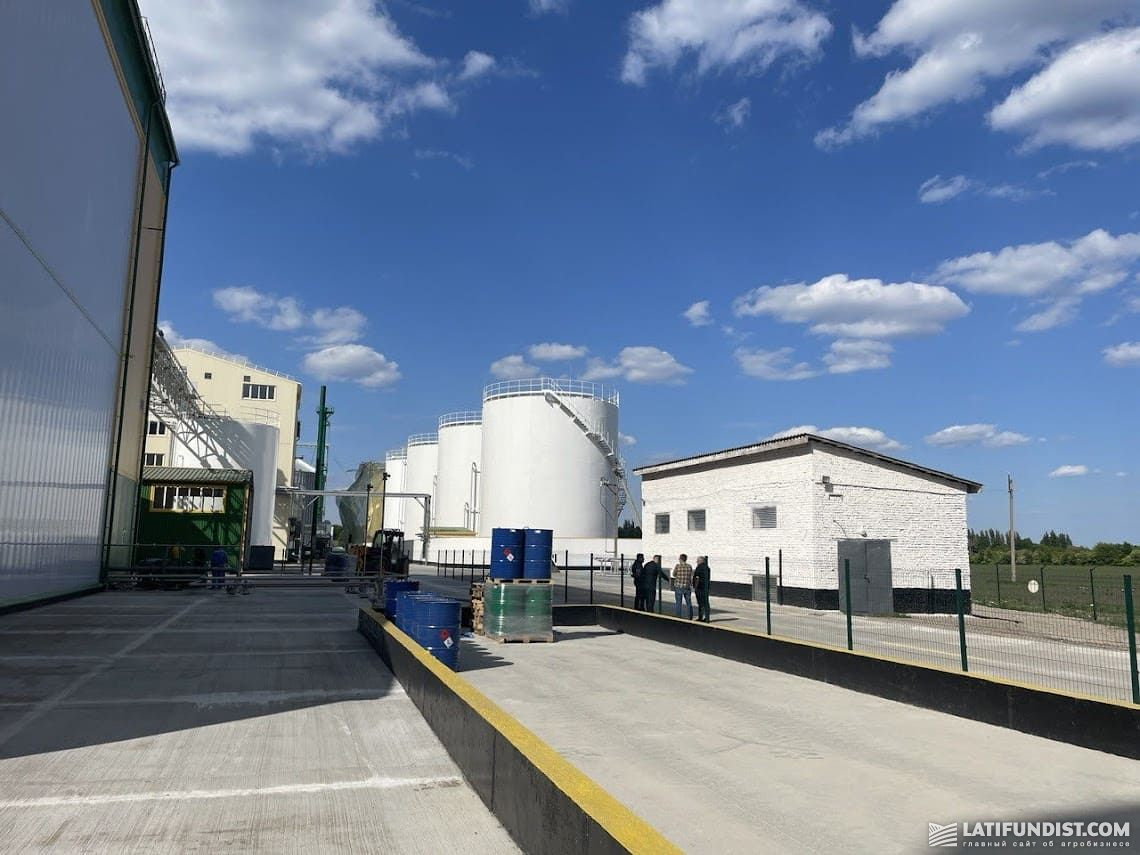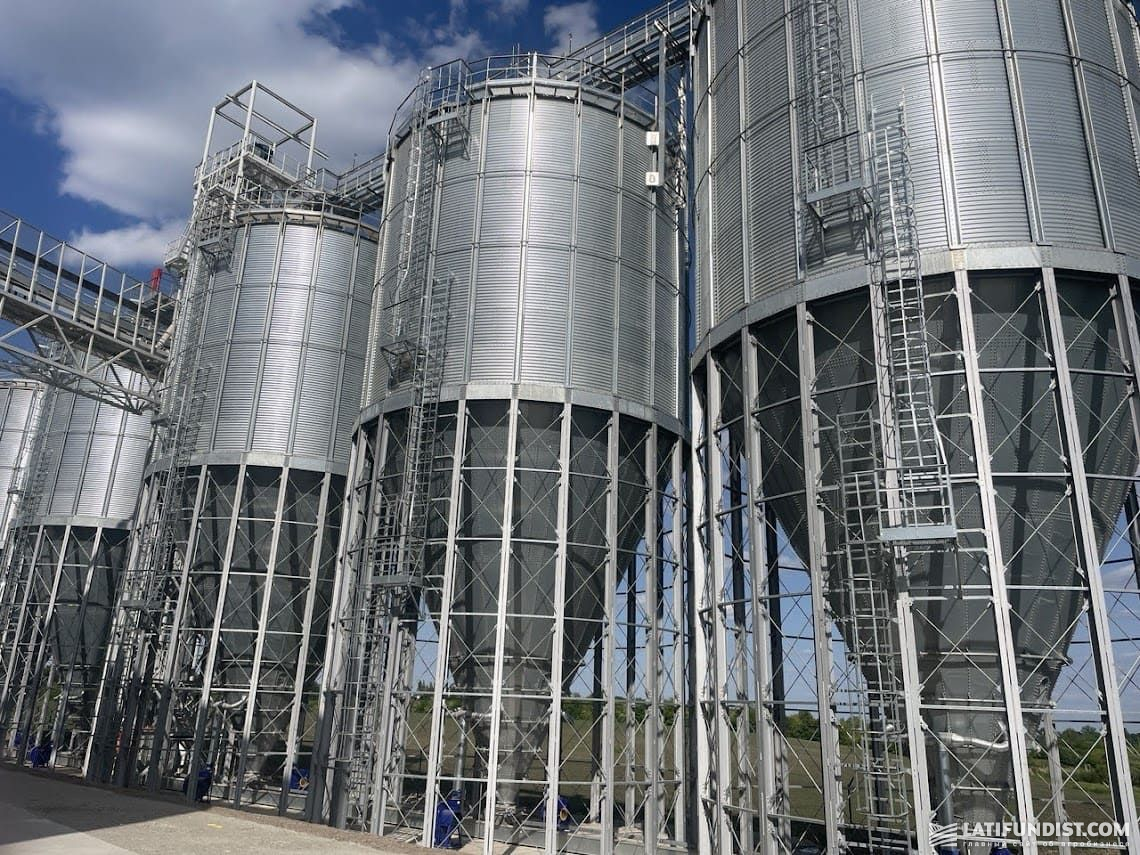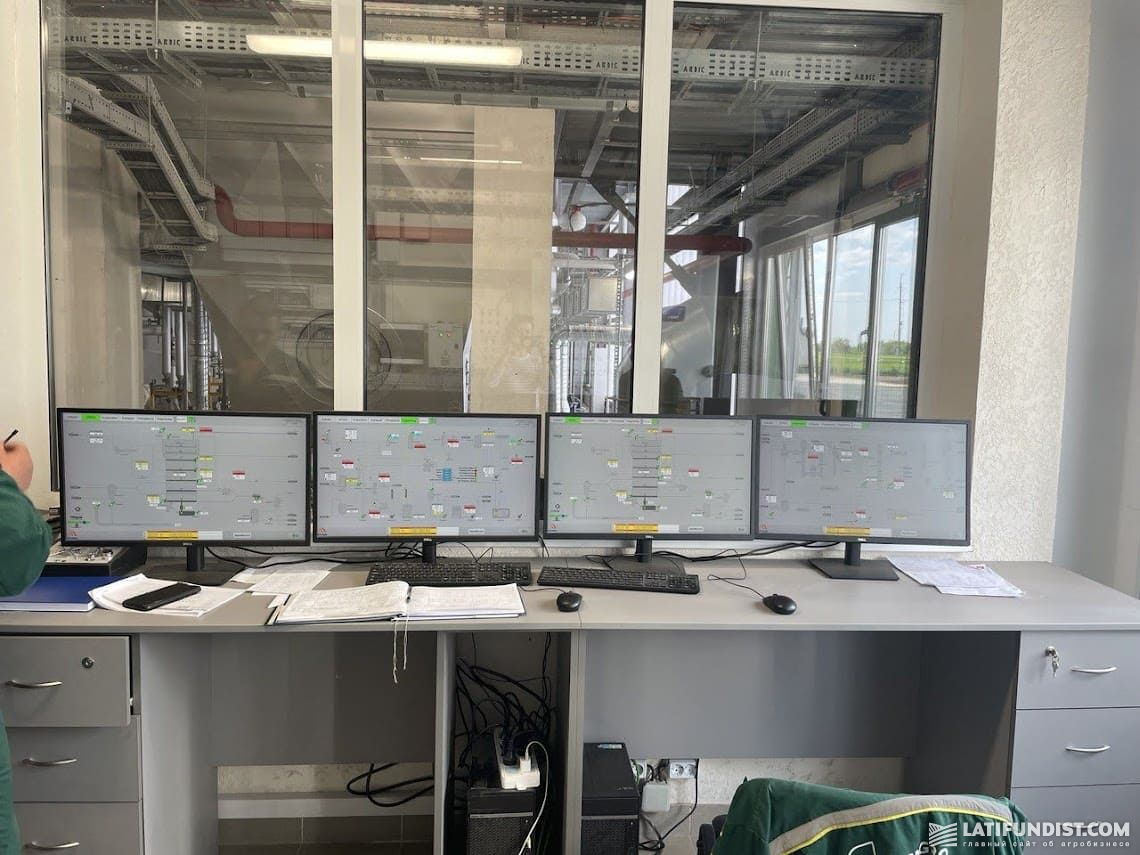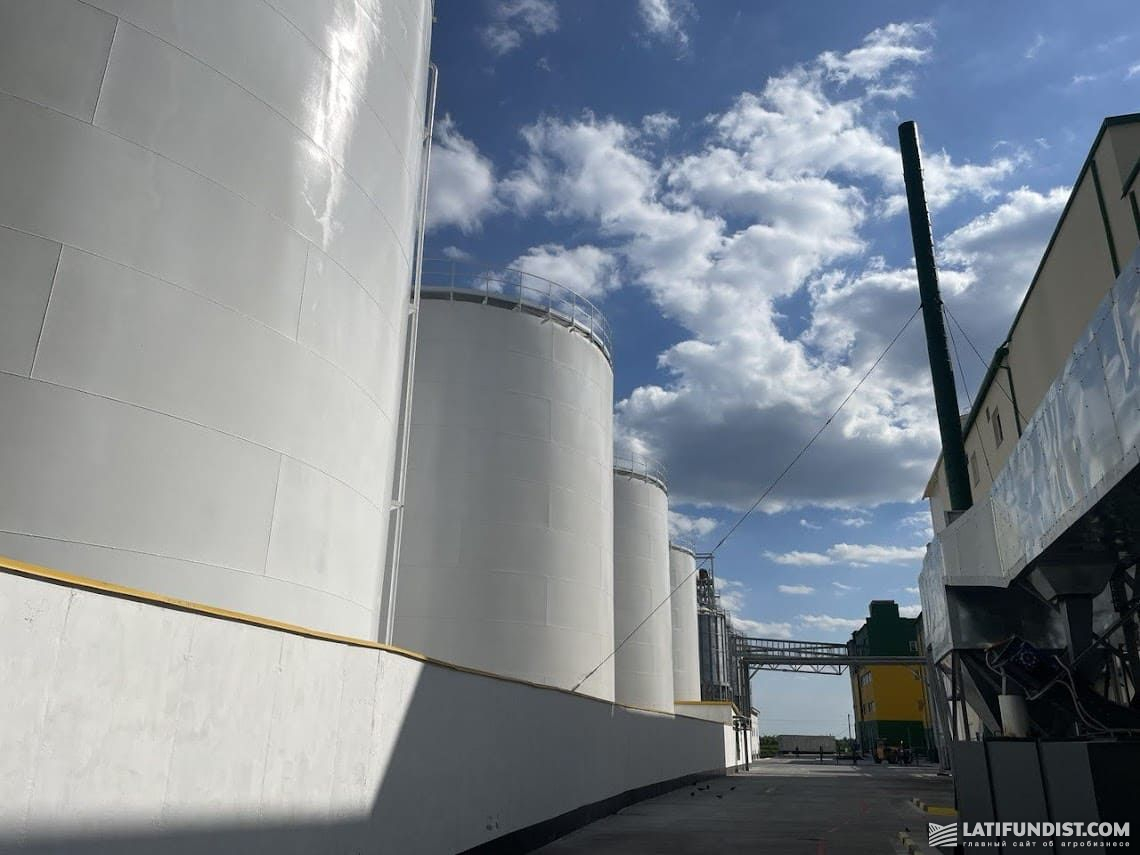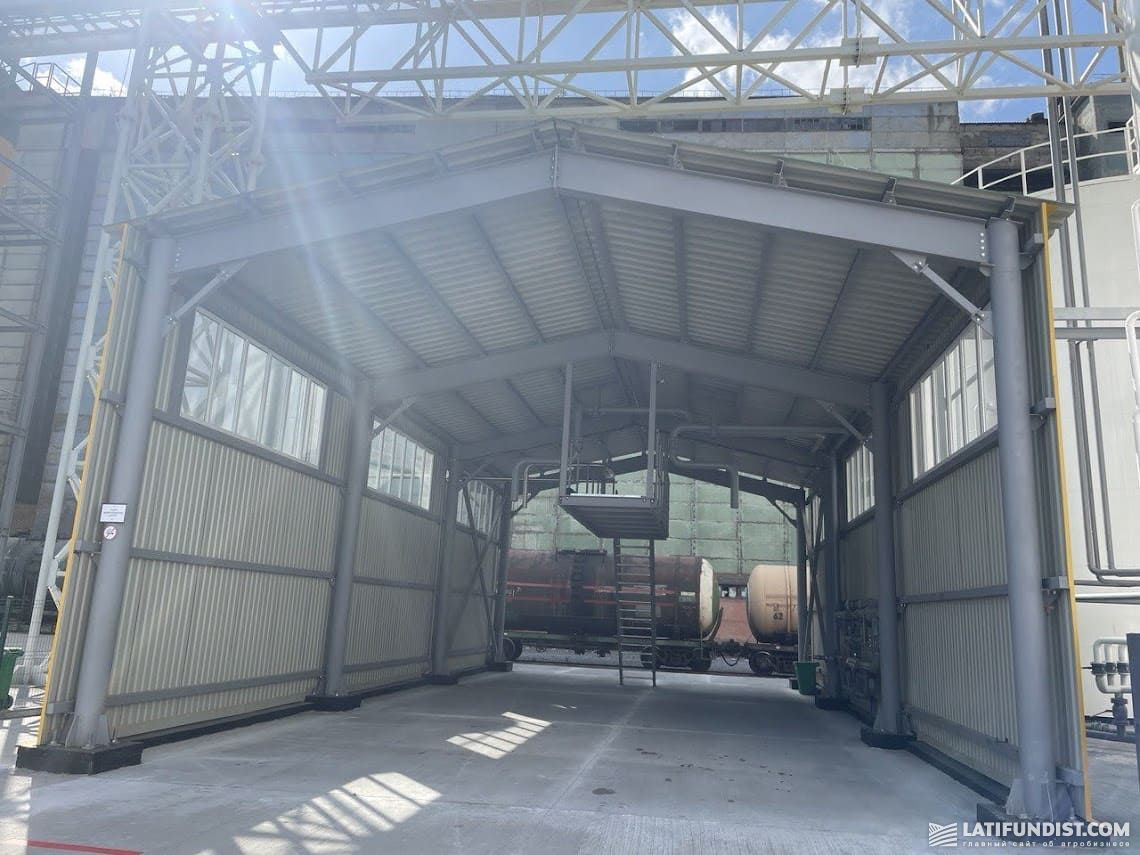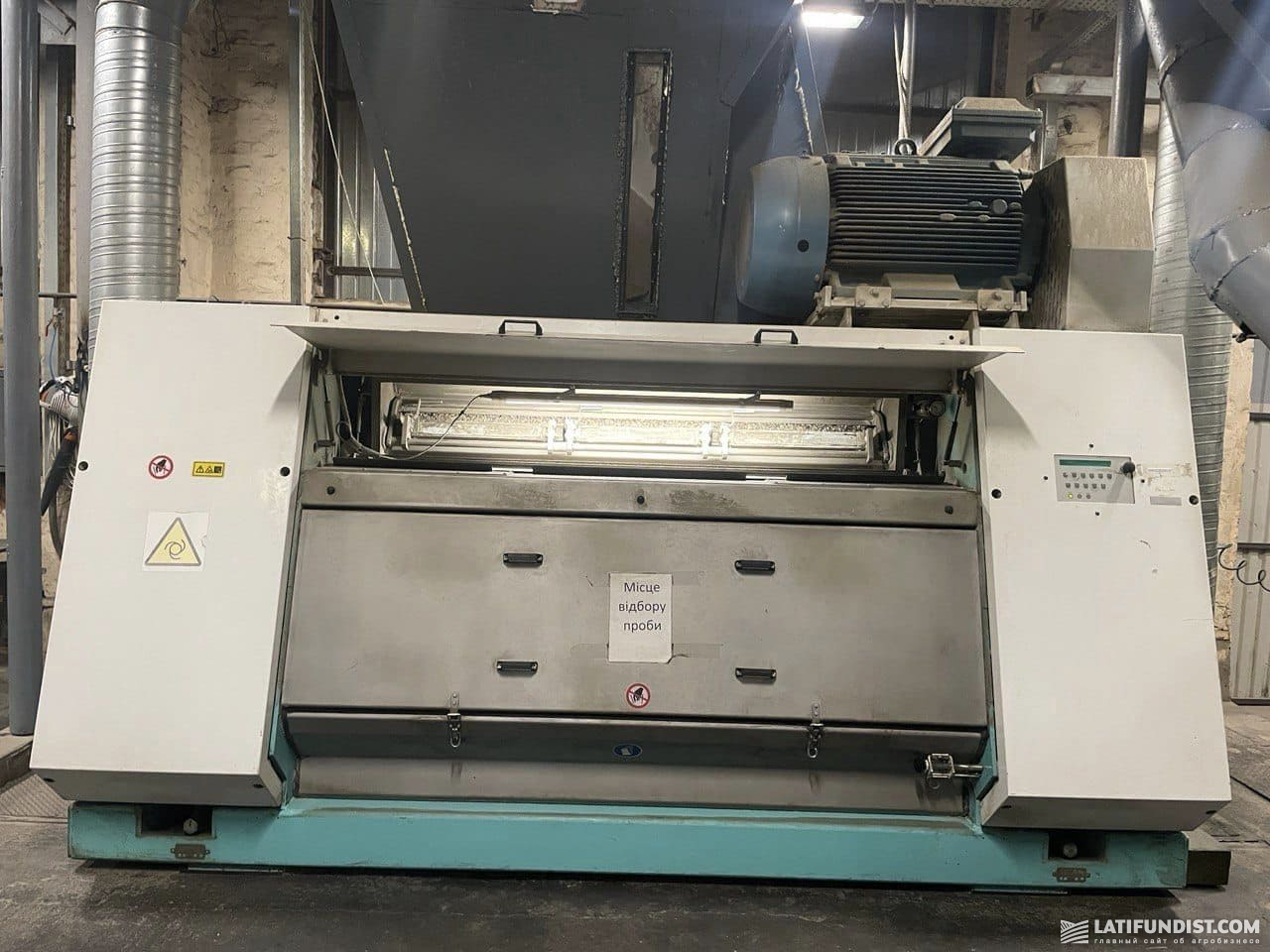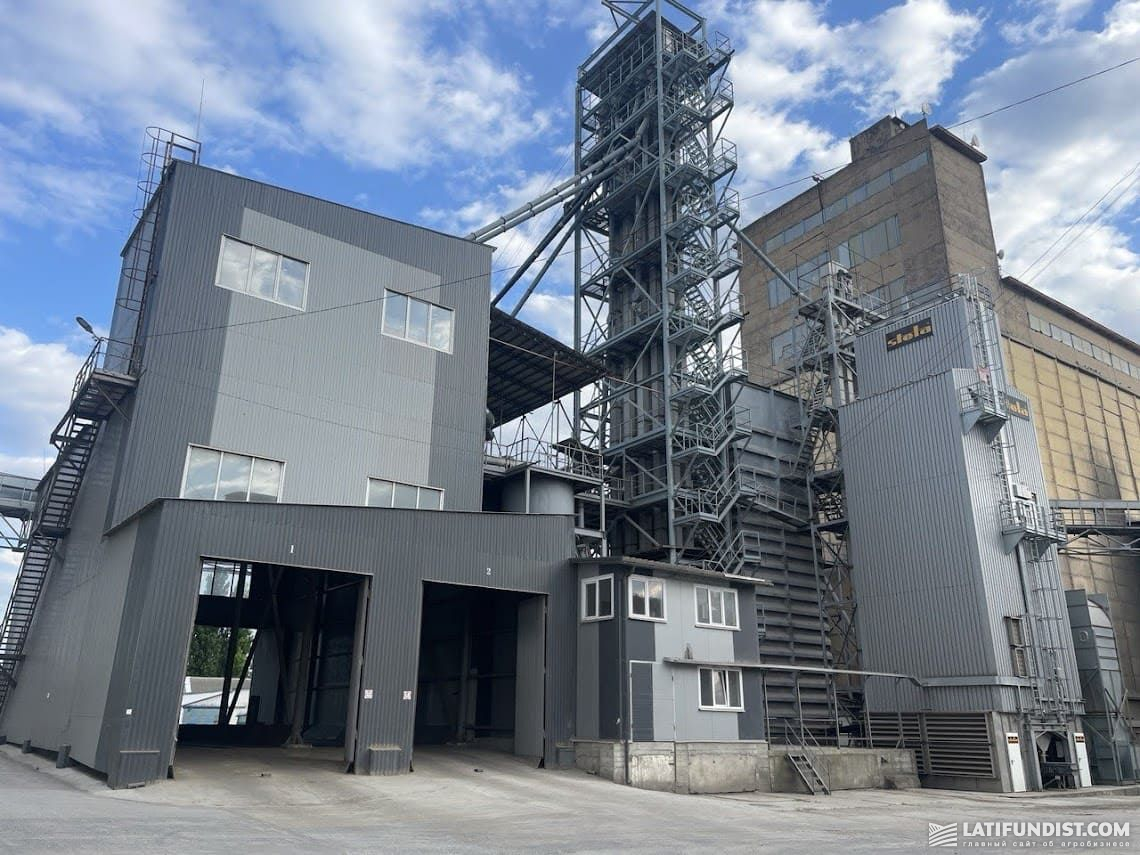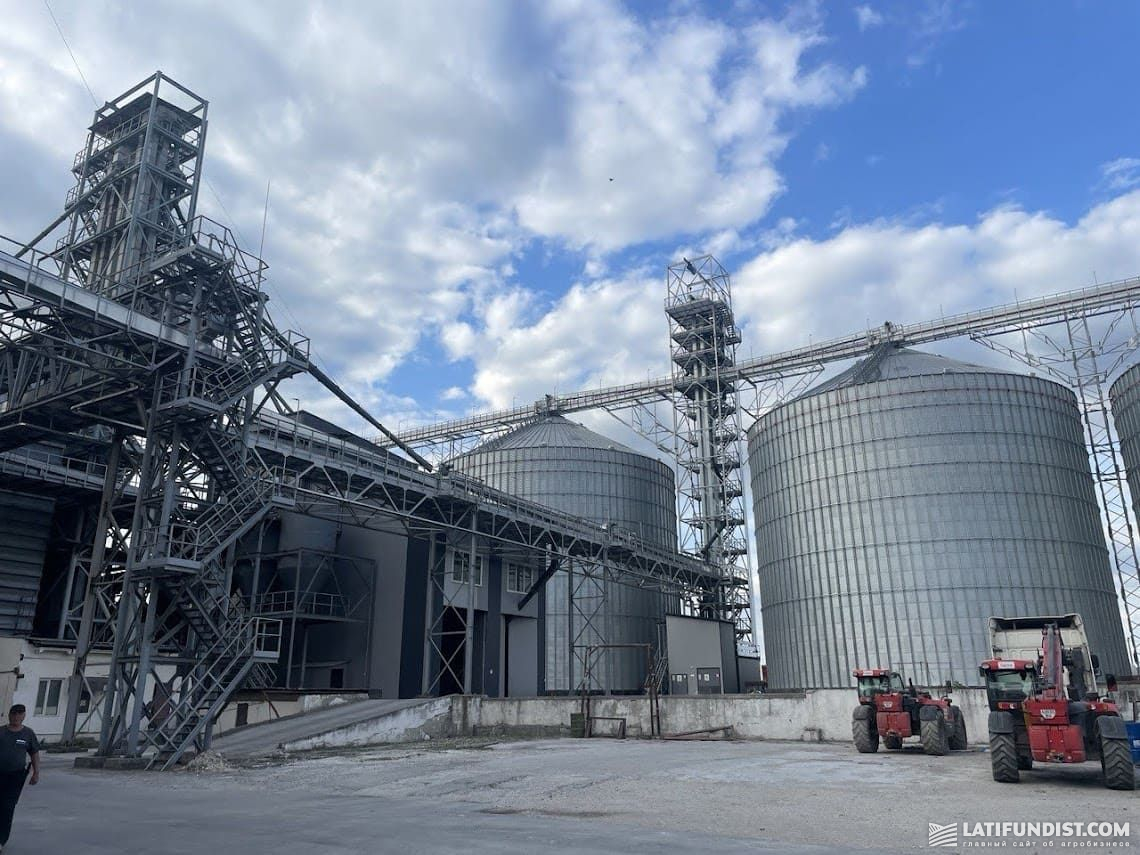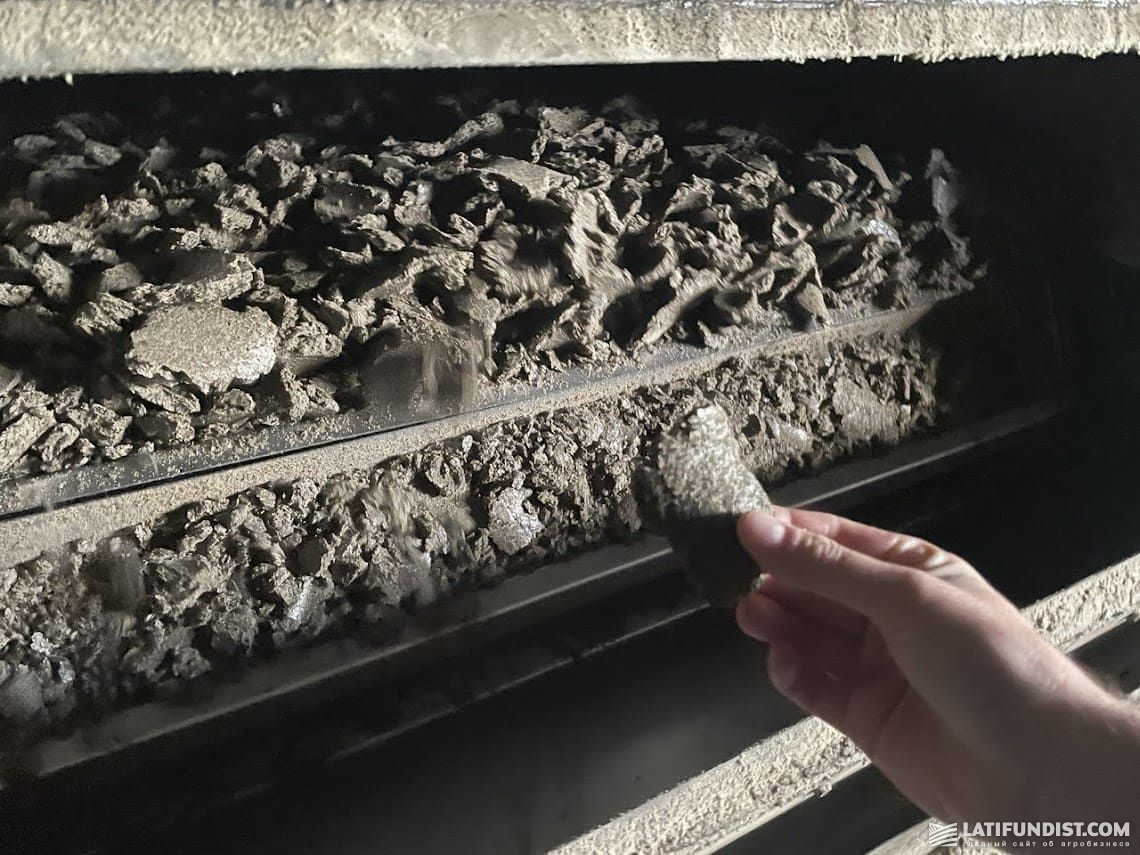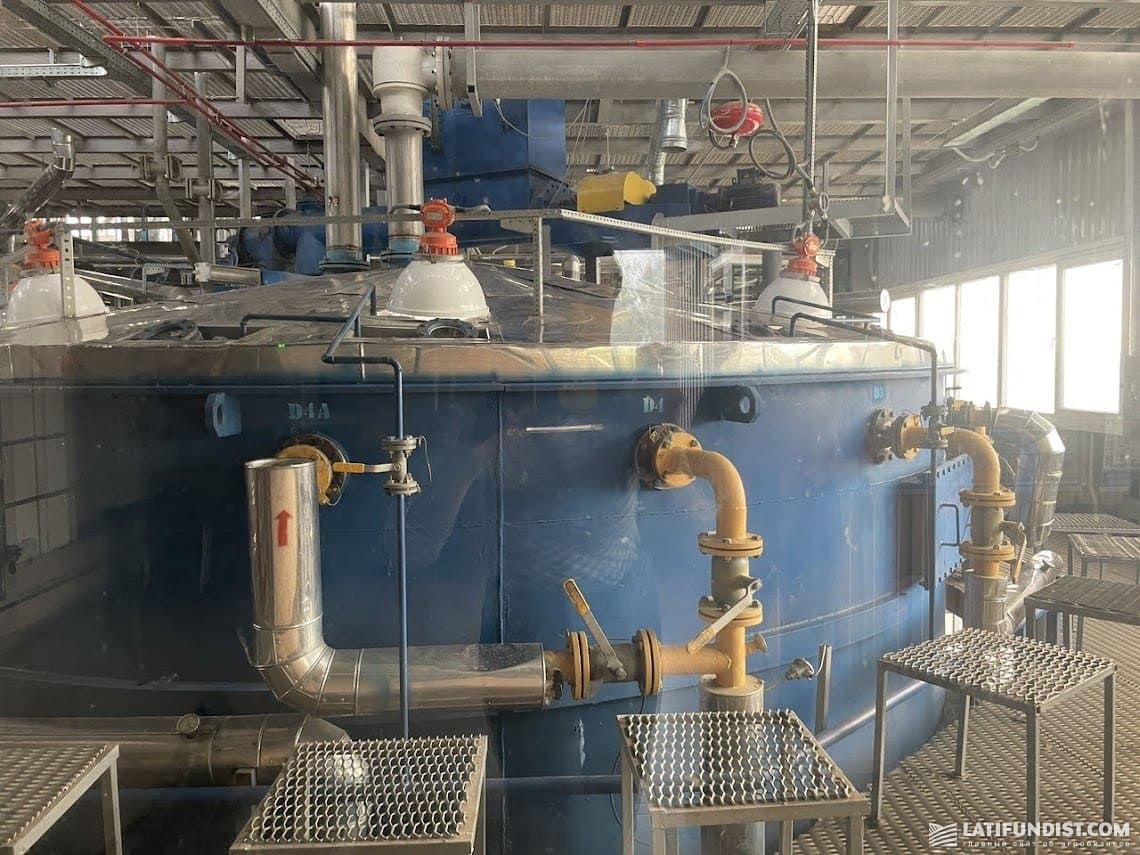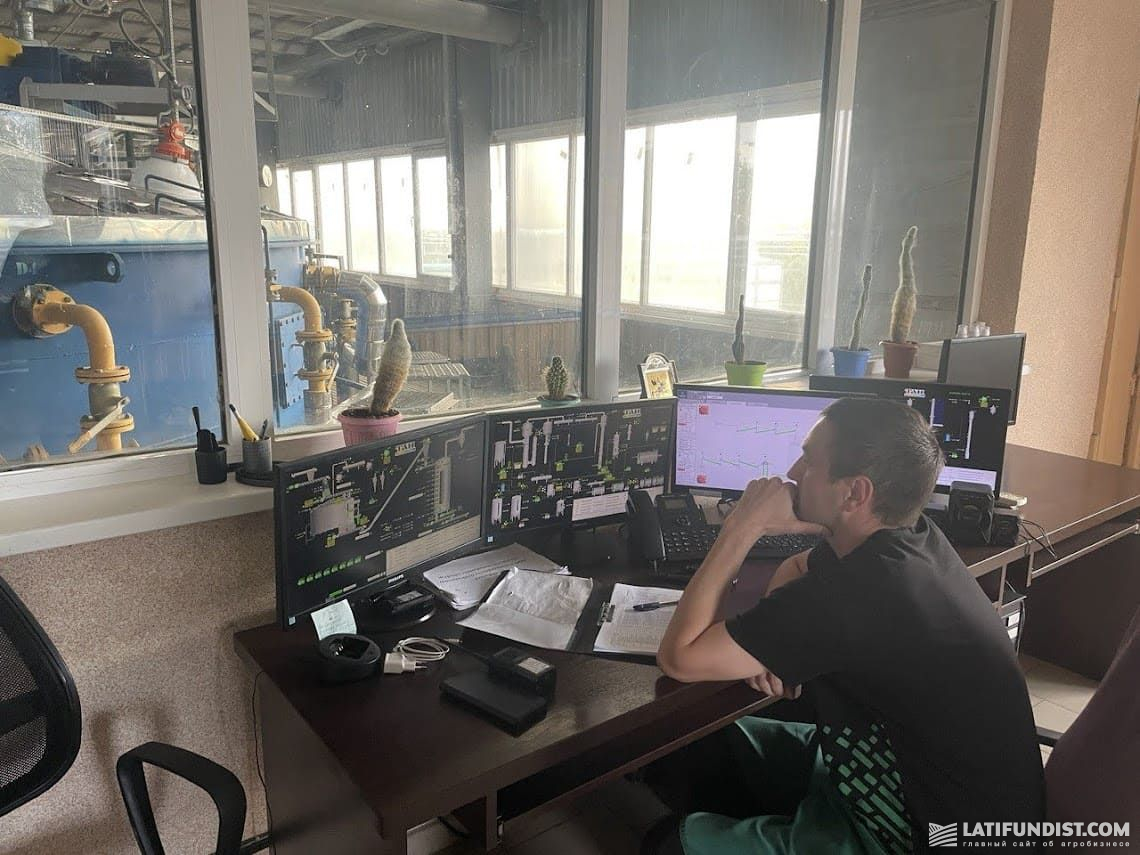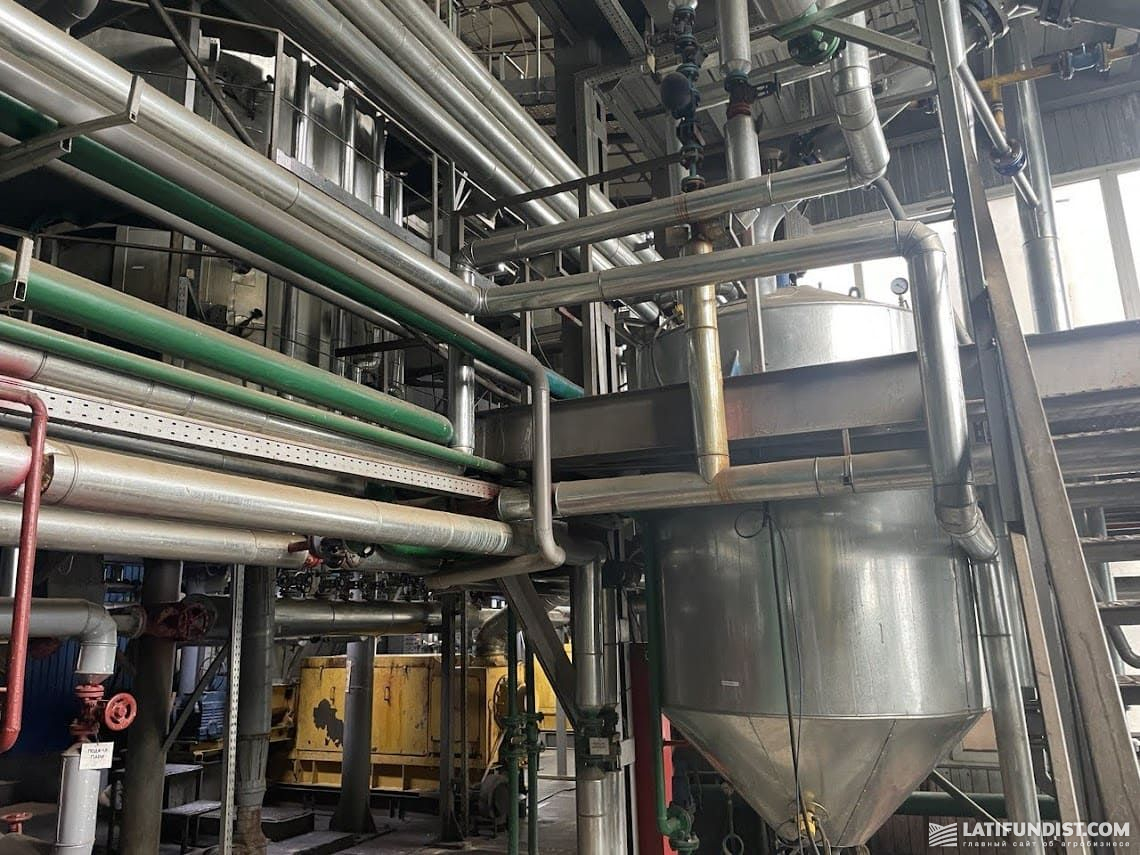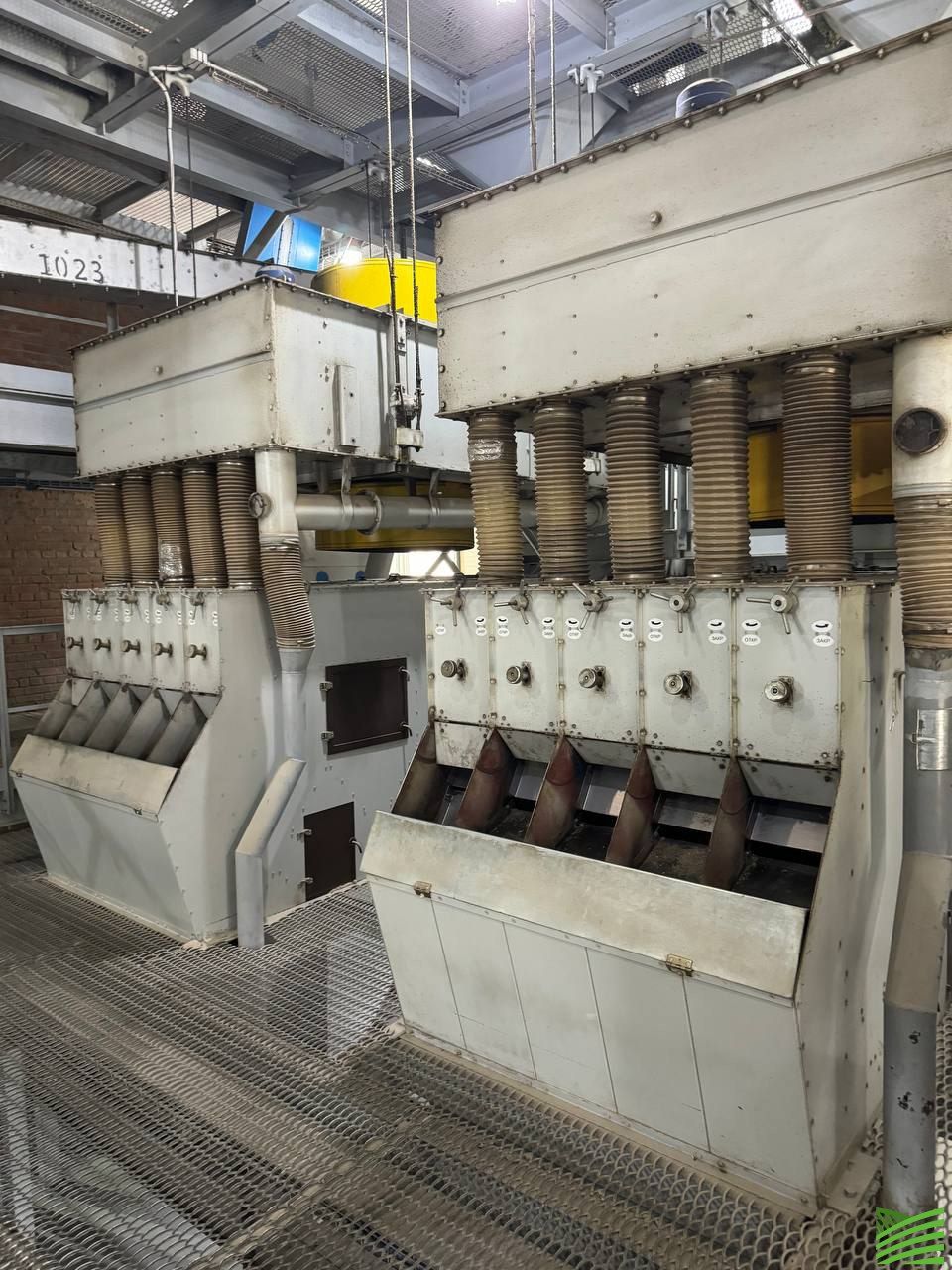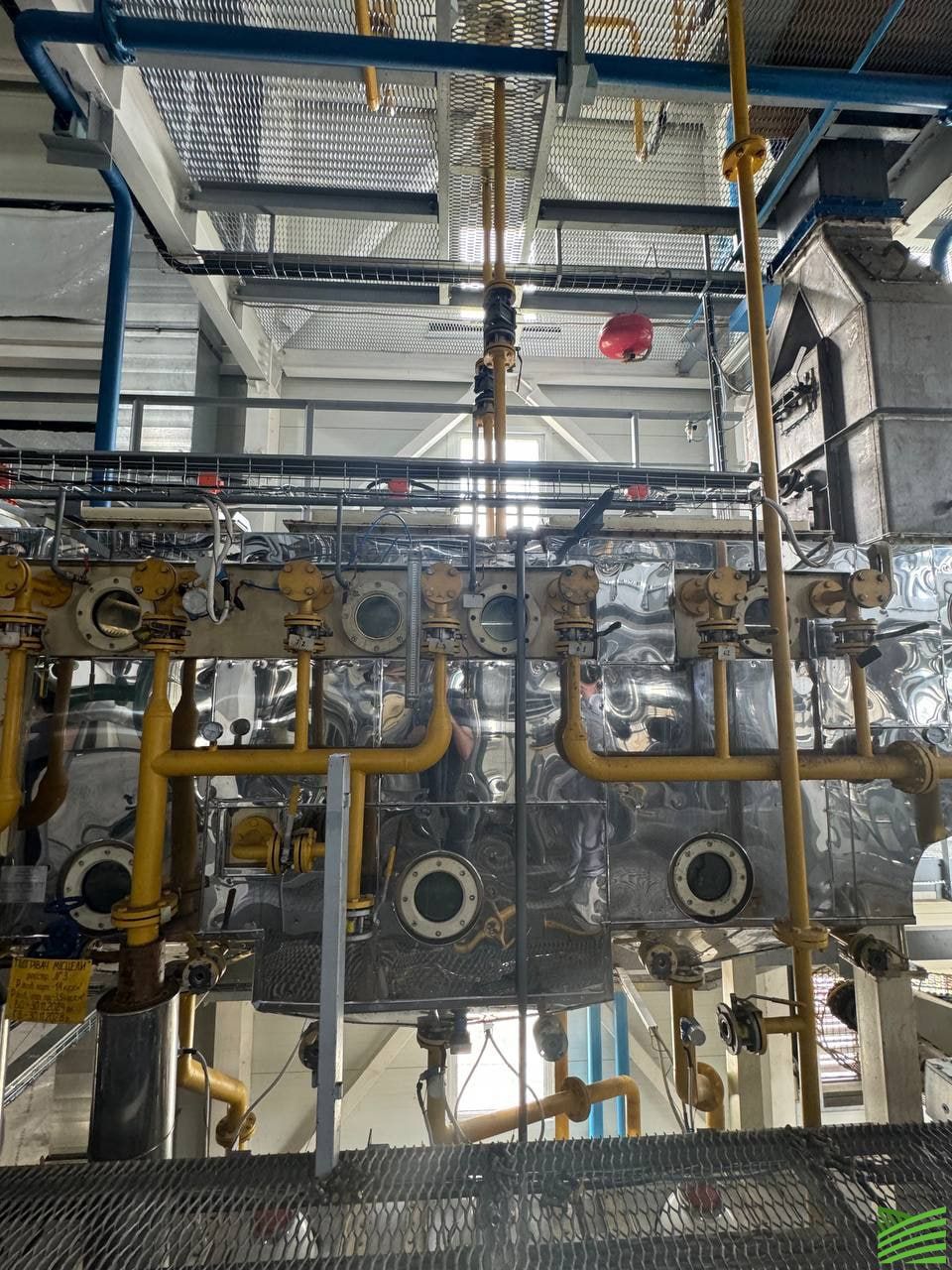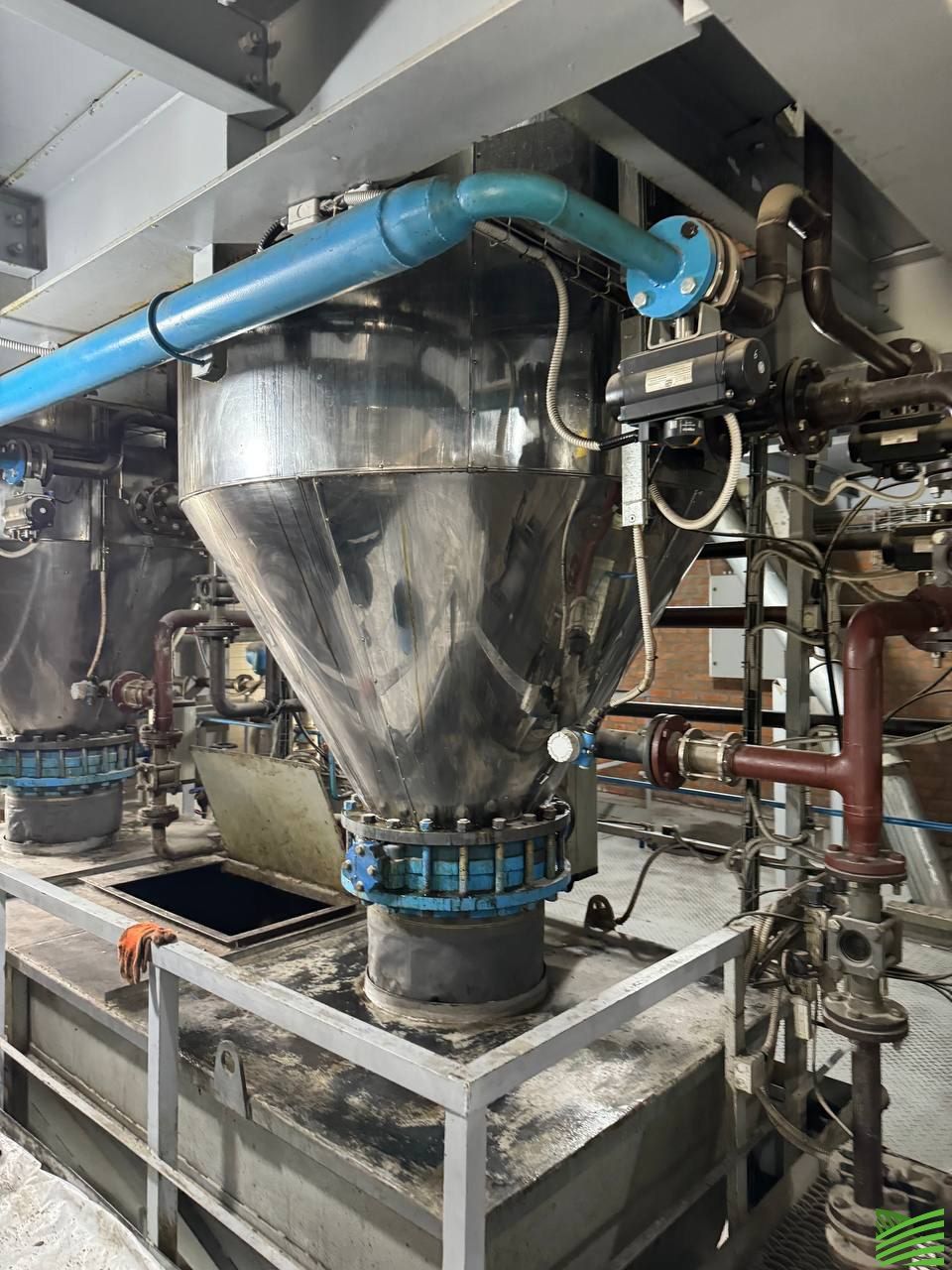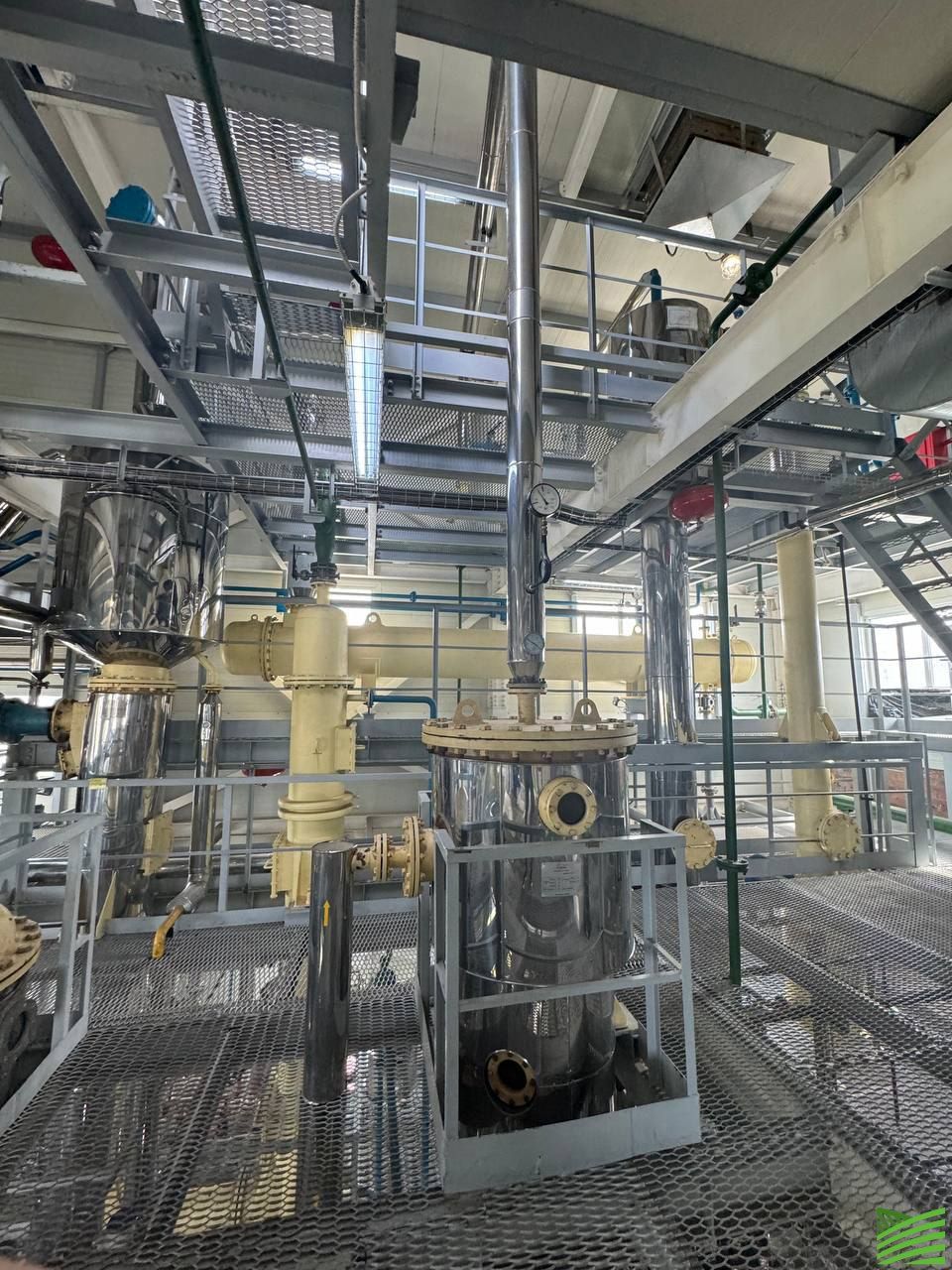What of Rapeseed Crush Margin and Who Among Ukrainian Processors Plans to Drop It? Closing Report From the AgroTour
This year, it may actually be more profitable to export rapeseed rather than process it in Ukraine, warns the director of a multi-crush plant in Khmelnytskyi region. The director of another warns that competition for raw materials will intensify for both Ukrainian and foreign processors. The Rostock-based German plant alone is already planning to import 500,000 tonnes of rapeseed from Ukraine.
So what is up with the rapeseed crush margin? Will there be enough raw materials for everyone? Where do we export rapeseed products and how do we develop the culture of rapeseed oil consumption in Ukraine? We were seeking answers during our "Processing: Soybean and Rapeseed" AgroTour, accompanied by our partners Bühler Ukraine and Bulk Trans. In the final article, we cover rapeseed processing plants for our readers.
Krasnohirsky Vegetable Oil Plant: processing organic raw materials
It is symbolic that we started our AgroTour with the first rapeseed pressing plant in Ukraine, Krasnohirsky Vegetable Oil Plant. Last year, we reported that it withstood a raider attack.
From its very first day, the plant was designed specifically for rapeseed. At the time, this crop was widely planted in Ukraine and there was talk of the prospects for bioethanol production. The management believed in this direction, but, according to Ihor Yakymchuk, acting director of the plant, after the first batch of products was produced and sold to the market, they realised that it was not economically viable to process just this one oilseed crop.
In the video, Ihor Yakymchuk tells us more about how they started processing sunflower, soybeans and even corn into oil.
In general, Krasnohirsky Vegetable Oil Plant is experimenting a lot in crushing niche crops. According to Olha Polozova, co-owner of the plant, the equipment is suited to processing flax, hemp, pumpkin, yellow and white mustard. For example, in addition to corn oil, they also produced technical soybean oil on request.
A few years ago, the plant was requested by some organic farmers to process organic sunflower for oil. They cleaned the lines, successfully produced the first batch, and now the company works with 80% organic sunflower. They produce organic cake and oil, and make pellets from the husk. The capacity of the plant is 90 tonnes of raw materials per day.
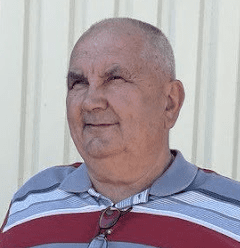
Ihor Yakymchuk
Acting director of Krasnohirsky Vegetable Oil Plant
"We can work non-stop for 2-3 weeks with organic raw materials, depending on the batch, and then we have to stop for a complete cleaning of the residues. We take photos of the cleaned equipment and silos, and a surveyor comes to check that everything is clean, and then we can start processing another batch."
The products are exported to the Baltic States, Germany, the Netherlands, and even Canada and the United States. Ihor Yakymchuk says that Europe is particularly interested in organic oilcake, which is then used to produce feed for livestock and poultry. In fact, there is a global shortage of such a processed product.
The plant operates both on its own and on tolling products. Ihor Yakymchuk says that it is still profitable for the plant to deliver organic raw materials over 500 km away. They buy it from farmers in Kyiv and Chernihiv regions. They also plan to grow organic crops on their own land. The company has already started the certification process. However, it will take them three years to become a commercially viable producer of organic raw materials.
At the time of our visit, the plant was processing the last batch of organic sunflower as there is no more in the country. So in autumn, the plant returns to the crop they started with — rapeseed. Until then, they are likely to work with niche crops.
We also ask about competition in the rapeseed processing industry, and Ihor Yakymchuk explains that Krasnohirsky Vegetable Oil Plant's advantage is flexibility, which means it can quickly clean up the production lines and switch to organic raw materials. This is something that large crushing plants cannot do.
What about the prospects for crushing inside the country? "There are prospects, but only once biodiesel is offered at petrol stations alongside conventional fuel," says the director. An interesting point. Let's ask other processors about it.
Trends in rapeseed processing
"Rapeseed processing is well aligned with sunflower and soybean processing in combined multicrop lines," says Ivan Nevmerzhytskyi, regional representative of Bühler's oilseed processing unit.
Installing a line for processing three oilseed crops is a global trend. This way, the processor optimises production and maintains smooth operations throughout the year.
Ivan Nevmerzhytskyi also notes that rapeseed crushing requires less equipment. For example, while soybean processing depends on the correct selection of cleaning machines, rapeseed processing is easier. The stones are usually bigger than the rapeseed itself, and a standard sorting machine will fully cope with their separation.
However, in soybean processing, it is recommended to have a stone separator in the cleaning unit, as stones may cause severe damage to the flaking roller mills in the further processing process.

Ivan Nevmerzhytskyi
Regional representative of Bühler's oilseed processing unit
"We also recommend a conditioning process prior to flaking. This has a positive effect on the flaking process itself and also on the subsequent extraction process. What is the purpose of flaking? It is to break the cells that contain the oil and thus simplify the process of extracting it."
He is also enthusiastic about the prospects of rapeseed hulling technology.

Ivan Nevmerzhytskyi
Regional representative of Bühler's oilseed processing unit
"We remove the hull when processing soybeans. Rapeseed also has one, but practically no one removes it now, because it involves additional financial costs and the complexity of the process itself, which is just now undergoing intensive development. But if we remove it from rapeseed, we can boost the price of the meal."
Bühler is currently rolling out the first pilot project at one of its plants in Poland. The expert expects this technology to become a global trend at crushing plants shortly.
King Smak: promoting a rapeseed oil consumption tradition in Ukraine
We move from Kyiv region to Kirovohrad. Our team is expected at the King Smak multicrush plant. The company started processing soybeans in 2017, and rapeseed only in 2023.
The decision to switch to rapeseed processing was made here well before the full-scale invasion.

Maksym Korol
Managing director of
King Smak"We counted the profitability of production and found that the economics worked. And then, when farmers expanded the rapeseed area, we knew there should be no problems with raw materials. And this crop will be developed in Ukraine in the future. Farmers will increasingly turn to oilseeds."
The soybean plant itself was used as a base for the construction of an 800-tonne daily rapeseed processing facility during the war. The project was financed with both own and loan funds. A separate workshop was built to produce pressed oil and rapeseed cake. The cake is then sent to the extraction line, where it is used to make oil and meal.

Maksym Korol
Managing director of
King Smak"As for oil production, our company is one of the largest producers of deodorised refined sunflower seed oil. Our capacity allows us to produce 700 tonnes of oil per day. We also produce refined soybean oil. So it is no problem for us to refine rapeseed oil as well."
Oleksandr Feshchiy, Deputy General Director for Production, says that King Smak was the first company in Ukraine to produce deodorised rapeseed and soybean oil.
Is all rapeseed oil exported? The lion's share is, but the company is developing a tradition of consuming this oil in Ukraine and selling it in domestic retail chains.
Speaking of the margins of oilseeds processing, Oleksandr says that rapeseed currently has the best one. However, this situation changes from season to season. At the time of our visit, the plant was processing soybeans. Then they planned to go for a scheduled repair and then open the rapeseed processing season.
VITAGRO: rapeseed crush margin to drop dramatically this season
"Processing is the key" is a common myth in Ukraine, says Serhiy Nechyporuk, Chief Operating Officer of VITAGRO Group.
We are in Khmelnytsky region at the VITAGRO plant. Sunflower is the core crop here, but from July to September-October, they process rapeseed.
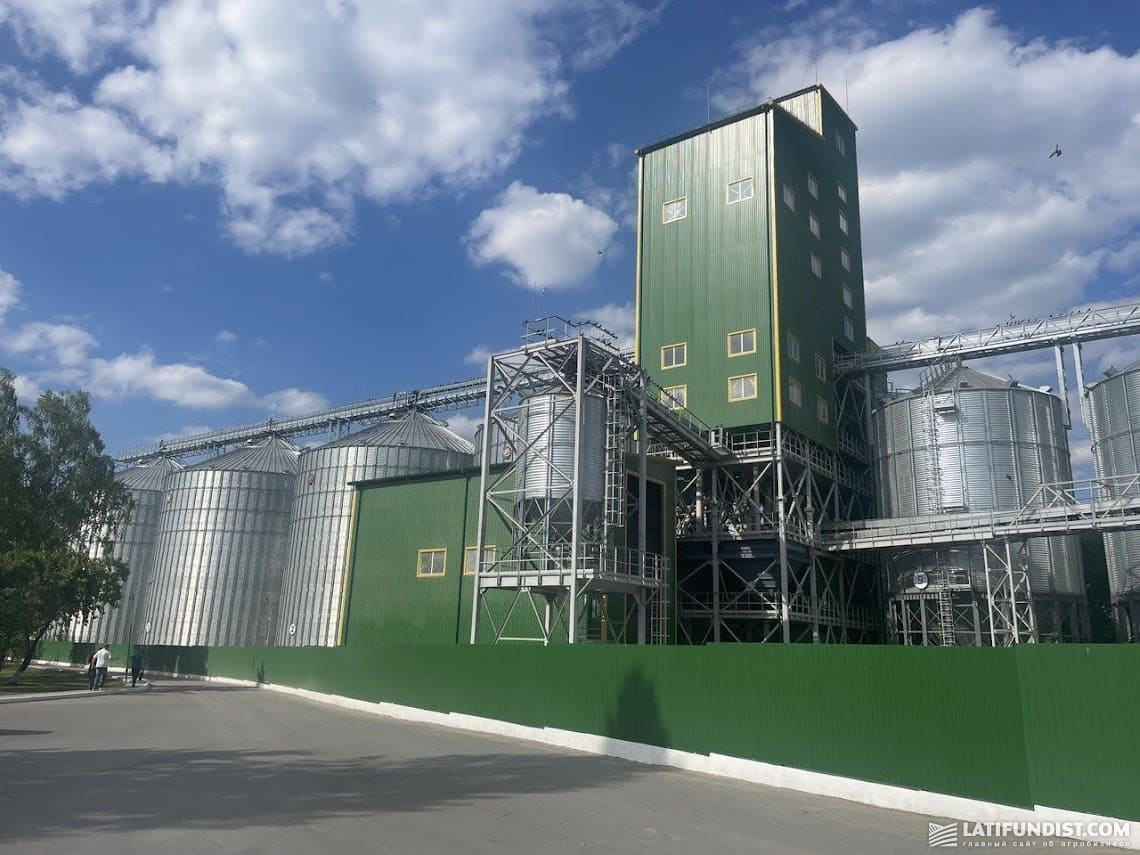
Serhiy Nechyporuk claims that processing is not a universal solution for Ukrainian agribusiness, as it has not only benefits but also huge risks. After all, there is a surplus of processing capacities in the country, increasing competition for raw materials and reducing crushing margins.
Only imagine how VITAGRO competes for raw materials: Lan-Oil, ViOil, and Kernel are located close to the plant. And there is already competition with Lviv-based Oliyar.

Serhiy Nechyporuk
Chief Operating Officer of VITAGRO Group
"The main focus is on margin management. The crush margin has returned to the usual level of $30-50/t of sunflower EBITDA, and will be volatile in the next 2-3 years. This year, it will be largely a farmer's market, as we expect very strong competition for raw materials, and it is clear that the commodity producer will be the winner. Processors will compete in terms of efficiency of their business models and commercial component."
This year, Serhiy Nechyporuk believes, it may be more profitable to sell rapeseed for export rather than process it in Ukraine. He expects that the plant may extend the sunflower processing season and skip rapeseed crushing.
Now about the plant itself. Before the big war, the company processed sunflower (120 tonnes per day) and rapeseed in the oil press shop. With the start of the full-scale invasion, they decided to increase the capacity and considered building their own oil extraction plant. It took a year and two months to bring the plan to reality.
The company's director of oil extraction and Volochysk elevator, Illya Krokhmalov, says that the existing equipment was upgraded to the oil crushing technology and new pieces were purchased from domestic and foreign manufacturers from Europe and Brazil. The extraction line is a turnkey project built by Chinese manufacturers. The raw materials are stored and treated at the elevator located on the same site. For this purpose, a Bühler separator and a LAW grain dryer are used.
The sunflower processing capacity is 500 tonnes per day, and the rapeseed is 400-500 tonnes. Meal and hydrated oil are the final products. The company exported to Germany, Italy, Romania, and even had a partnership programme in the romanian port of Constanta.
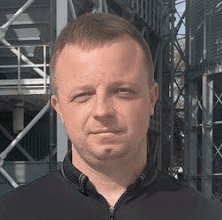
Illya Krokhmalov
Director of oil extraction and Volochysk elevator
"We exported to Europe since the very start of our oil pressing production. In 2018, we already had GMP+ (B2) and ISCC certificates for the European Union. When we built the crushing plant, we updated these certificates, and now we are also in the process of receiving approval for exports to China."
The company approaches exports pragmatically this year: where it counts the most, it goes there.
Oleksandr Shatailo, co-owner and director of Bulk-Trans, details the logistical challenges faced by processors in the video.
OKKO Group's Lan-Oil Trade plant
Are you planning to launch rapeseed crushing amid high prices for raw materials? We ask Oleg Radyuk, director of OKKO Group's Lan-Oil Trade plant.
We will surely do it. The question is in what quantities. Our target is 40 thousand tonnes. I think that the situation will be levelled out during the season, that is, the price of rapeseed will still correlate with the price of oil. A farmer in Ukraine does not set the price of rapeseed, it is formed on MATIF. The only question is how quickly the price of oil will react to changes in the price of rapeseed. There may be a problem here, he says.
We are in Ternopil region at the Lan-Oil Trade plant of OKKO. This is an unusual business for the Group. It entered it four years ago. From the very beginning, it was an oil press shop, which was rebuilt into a crushing plant in 2016.
The facility's daily processing capacity is 520-530 tonnes of sunflower, 280 tonnes of soybeans and 400 tonnes of rapeseed. A total of 160,000 tonnes of oilseeds are processed per year. According to Oleg Radyuk, since the acquisition of the asset, its modernization has increased processing capacity by 30%. The plant's workshops use both Ukrainian and foreign equipment, such as presses and cookers from TAN and a Bühler roller mill.
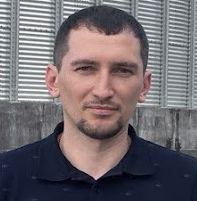
Taras Bosyi
Production director at OKKO Group's Lan-Oil Trade plant
"The roller mills were a weak spot here, so instead of 6 small ones, we installed one large Bühler roller mill. All the upgrades allowed us to significantly improve the quality of the finished product and reach the standard output of 500 tonnes per day, which is the average for the entire period of sunflower seed processing."
Improvements were also made to the raw material storage facilities. Last year, new 60 m³ silos were installed by Symaga, a European manufacturer. The finished product — oil — is stored in two tanks of 2,000 m³ each, and the meal is stored in warehouses. The plant was also equipped with multiple energy sources in case of blackouts: diesel generators and a cogeneration unit.
The plant receives part of its raw materials from the company's fields, but the larger part is tolling. As Oleg Radyuk explains, the Group includes OKKO Agrotrade, which finances agricultural producers — supplies them with fuel and mineral fertilisers — against their future harvest. The crushing plant is also partly contracted under this programme.
At the beginning of the marketing year, the company draws up a production programme: how many tonnes and what they are going to process, how they are going to handle the products. But during the production season, the plan may be slightly altered. For example, last year they saw that there was a good margin on rapeseed, so they decided to process an additional 6,000 tonnes and cut the sunflower programme a bit.
This year, the plant will compete for raw materials. For rapeseed, it will have to compete with foreign processors. For example, a German plant in Rostock is already planning to import 500 thousand tonnes of rapeseed from Ukraine. That is why the company is developing soybean processing.
As for sales markets, almost all of the oil is exported by tank wagons to Europe and 30% is sold directly to the Group's plant for biodiesel. 60% of the meal is exported to Europe and 40% is sold domestically. It is delivered through the western borders. They intend to develop their own brand, but have paused this project for now.
Oleg Radyuk is optimistic about the future of the processing industry in Ukraine: "Are there too many crushing plants? Perhaps, there are too many in some regions. But processing means added value and new jobs. This is a good story for Ukraine. We used to be a raw material state. And now we often hear how big market players are developing their processing business."
TAS Agro: entering premium markets
TAS Agro started processing oilseeds in 2022. And last year, it shipped processed products to end consumers in container batches on CIF basis in China and Malaysia. In the 2023/24 season, the company processed 100% of rapeseed and 70% of sunflower of its own production, which is about 60 thousand tonnes. Anton Zhemerdieiev, Deputy CEO and Chief Commercial Officer, followed the AgroTour and agreed to share the company's processing experience.
Kernel: rapeseed and soybean work well with sunflower processing
Kernel operates three multicrush plants and the share of rapeseed at each of them varies depending on production plans. This season, the company expects to process 350-400 thousand tonnes, which is 8-10% of its total processing capacity. The oil is exported to China and the EU, and the meal to the EU and North Africa.
Oleksandr Golovin, Kernel's Commercial Director for Ukraine, says that rapeseed and soybeans give the company confidence and extend the processing period.
Agrotrade 2000
The Agrotrade 2000 oilseeds crushing palnt in Kyiv region is the final stop on the AgroTour. It focuses more on sunflower. In the coming years, they even plan to increase the processing capacity from the current 260 tonnes per day to 350 tonnes and 500 tonnes per day. The company also processes rapeseed and soybeans. Rapeseed daily processing capacity is up to 200 tonnes.
That is where we learn that rapeseed has a high sulphur content, which affects the wear and tear of equipment. According to production manager Serhiy Kulagin, the modernization of the plant is also driven by the worn-out lines. All lines are replaced with stainless steel.
What about the plant's rapeseed margin? Director Andriy Polyakov says the market is volatile, and the situation may change dramatically. Last year, they processed about 20 thousand tonnes of rapeseed and the margin on rapeseed was higher than on sunflower.
More about the plant can be found in the article Soybean Crushing: Margins, Markets and Raw Material Quality. Latifundist Visited 10 Processing Plants in the AgroTour.
Export, processing and production of rapeseed
As we were told by the Ukroilprom association, for the first time in years Ukraine processed about 1 million tonnes of rapeseed (23.3% of the 2023 harvest). This is despite the fact that this crop is an export-oriented raw material.
The exports of processed products, in particular, meal and oil, also showed positive dynamics. In July-April of 2023/24 MY, the export of rapeseed oil reached 408 thousand tonnes (compared to 69.8 thousand tonnes in September-April of 2022/23). The country is firmly entering the markets of China, EU countries, Malaysia, Singapore and other countries, the Association notes.
The data from the industry associations on rapeseed production is rather controversial. The forecast from Ukroilprom is 4 million tonnes with an average yield of 2.92 t/ha.
Whereas UGA reported that this year's harvest could reach 4.3 million tonnes (4.5 million tonnes in 2023), and exports could reach 3.4 million tonnes (3.7 million tonnes in the current season).
Grower may harvest 4.2 million tonnes of rapeseed, the State Statistics Service estimates, and the Institute of Agrarian Economics expects 3.7 million tonnes. We recently monitored rapeseed prices and asked analysts about this. ASAP Agri CEO Christina Serebryakova agrees with the figure of 3.7 million tonnes.

Christina Serebryakova
ASAP Agri CEO
"3.7 million tonnes, as I see it, is the closest figure to the market situation. 4.3 million tonnes is if we are lucky. But due to what? I am not sure. Because the early flowering and frosts that hit rapeseed will definitely not allow 3 tonnes per hectare."
So, rapeseed does look promising for agricultural producers this year. And processors working under the tolling scheme have no option but to compete for raw materials more fiercely.
Kostiantyn Tkachenko, Natalia Rodak, Latifundist.com


